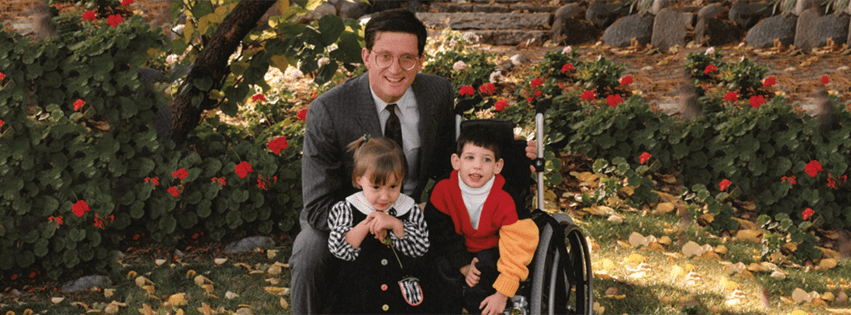Inclusion is a word used so often that its meaning often gets lost. The best way to be inclusive, I believe, is to educate yourself on someone else’s perspective. I was born with right hemiplegic cerebral palsy. Cerebral palsy (CP) is a condition affecting muscle tone, movement and motor skills, and it affects everyone differently. My right arm and leg are mildly paralyzed. An estimated 764,000 children and adults currently have cerebral palsy in the United States.
I was diagnosed with CP as an infant and immediately began services at Easterseals Central Illinois, receiving physical and occupational therapy. My therapists and family always encouraged me to not let my disability slow me down, and I am forever grateful for the services I received. Not only did they help me physically, but they gave me a sense of empowerment.
Embracing My Disability
Memories from my childhood range from inspiring to melancholy. Children do not mean to be rude; they mostly lack understanding. I was the only child in my elementary school who had a physical disability, which made me a constant curiosity among my peers. In junior high I enjoyed being a cheerleader, but I could hear parents and other kids pointing me out in hushed tones. By high school I learned the best thing to do was to hide my disability. I did not want to acknowledge it at all.

Disability is often assumed to be a negative in someone’s life when it can actually be the complete opposite. Everything changed my freshman year of college when I really embraced who I was—including my disability.
My first job out of college was working as an independent living advocate for people with disabilities in Rockford, Illinois. I loved helping people of all ages reach their goals. I helped them learn everything from cooking spaghetti independently, to applying for disability benefits, to navigating public transportation as a wheelchair user. Because of my own diagnosis, I could relate to my clients in a mutually beneficial way.
My desire to return to the Peoria area soon crept in, and I began to look for employment close to home. I was excited to find a great opportunity, but it required a typing test. Because of my CP, I type with one hand, so I could not pass the test in the allotted time, even after being allowed to retake it. There was no opportunity for accommodation or adaptation. That company never gave me the chance to showcase who I was and what I could offer because of that test.
My career eventually led me to the Peoria County Courthouse, where I was given an opportunity to shine. They gave me a chance to do everything, even if I did it a little differently. I eventually went on to be the courtroom clerk in the busiest courtroom in Peoria County—a job requiring a lot of fast, accurate typing.
As the 1993 poster child for Easterseals Central Illinois, I was thrilled when I got the chance in 2016 to return to the organization that gave me so much. As an outreach coordinator, I connect with families on a unique level and advocate for them.
My role at Easterseals has exposed me to individuals with a wide range of diagnoses. No matter the diagnosis, people with a disability have to get creative to get things done. Whether it is putting on nail polish with your mouth because you can’t use your right hand, or being the first ones in the door when a restaurant opens because it is less stimulating for your child, you find a way to make it work.
How You Can Help
What can you do to make your community or workplace more inclusive for people with disabilities? Here are some ways you can be more inclusive right now:
- Use people-first language. For example, Molly is a person with a disability, not the disabled person Molly.
- Learn about other perspectives. Purposely educate yourself on people’s differences and disabilities and the impact it has on their lives.
- If you have children, talk to them about disabilities. There are amazing resources out there, including some through Easterseals Central Illinois.
- Ask questions; don’t make assumptions. The biggest difference between being offensive and being curious is context. If you have questions for a person with a disability, approach the conversation with kindness and respect.
- Look around your workplace and community spaces, and imagine what it is like for someone with limited mobility to navigate those spaces. PM




